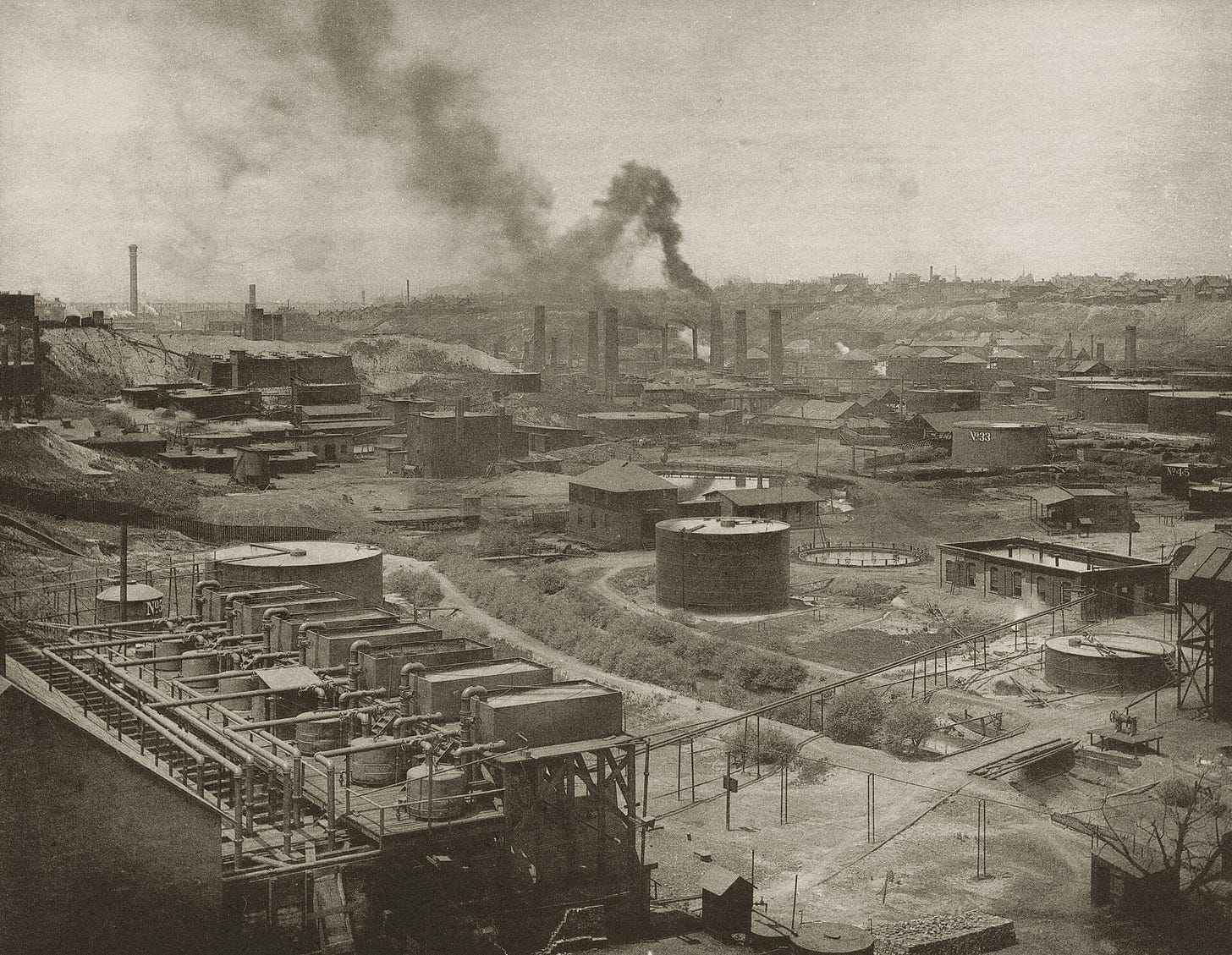The Standard Oil of Our Time
AI is making Big Tech exponentially more powerful. Breaking them up isn’t radical — it’s survival.
The biggest companies in the world don’t sell products anymore. They sell reality.
They decide what you see, what you buy, what you think you need.
And to be fair, they built tools we all rely on. But dependence is the point. Every click, every search, every “just one more scroll” feeds the same loop — a system so seamless it feels invisible. Look close enough and you can see the walls tightening.
We’ve been here before. Standard Oil built a machine that pulled oil and power out of every corner it touched. When the government finally broke it up in 1911, the sky didn’t fall. Prices leveled out. Innovation surged. The country got stronger.
We’re back in that moment again. Only this time, the resource isn’t oil. It’s attention, data, and infrastructure — the raw materials of modern life.
The new monopolies
A handful of companies now own too many parts of the flywheel. They don’t just dominate one thing — they dominate everything that touches it: the platform, the marketplace, the ad system, the cloud, the device, the feed.
If Rockefeller owned the wells and the rails, today’s giants own the pipes and the content flowing through them. They’re our newsstands, our malls, our billboards, our broadband — all rolled into one.
Every new idea, every startup, every creator now builds on their land and pays rent to do it. Even when you win, you win inside their walls. That’s not capitalism. That’s capture.
And with AI, they’re cementing it. The data they already control is training the models that will run everything next — search, education, medicine, journalism. The longer we wait, the steeper the climb. AI was supposed to level the field. Instead, it’s sealing it off.
The human cost
You can feel it even if you can’t name it. Prices go up because competition goes down.
Small businesses can’t reach customers without paying a toll — that local coffee shop vanishing from your feed because it can’t outbid Amazon’s algorithm.
Local news disappears. Your uncle, your aunt, your cousin, your co-worker — someone close to you — has probably been radicalized by the feeds that replaced it. The same ones that fill your feed with safe content and reheated outrage.
Nobody sets out to get radicalized. The feed just pulls you inch by inch.
That frustration people feel in politics, at work, even at home — it’s the same echo chamber algorithm feeding us rage bait instead of real debate.
The internet used to feel open. Now it feels owned.
We tell ourselves it’s free because we don’t pay for it directly. But we pay in other ways — with our attention, our privacy, our time, our ability to think without a middleman deciding what matters.
We’re all just trying to breathe inside someone else’s system.
What happens after
Here’s what people forget about Rockefeller: after the breakup, the pieces — Exxon, Chevron, Amoco — thrived. They competed, they got sharper, they built new things. Breaking them up didn’t kill them. It saved them from themselves.
The same will happen again.
The day after Big Tech is broken up won’t look like chaos. It’ll look like oxygen.
You’ll see new voices in your feed that don’t sound like everyone else.
Local stores and small creators will actually show up again.
Your data won’t follow you around like a tail you can’t cut off.
Work will stop feeling like you’re gambling with an algorithm.
The internet will feel smaller again — in a good way. More human.
Breaking them up is the start, not the finish. Without guardrails, the same incentives will stitch themselves back together. That’s where regulation matters — not as punishment, but as protection.
Start simple. Ask your reps where they stand on data monopolies. Support open tools. Stop calling it “free.” Your clicks are currency — spend them like it.
Why now
We always wait too long. The railroads. The banks. The phone companies. Every time power clusters, we look away until it’s too late.
But this time, the window isn’t closing. It’s slamming shut.
Just look at last month’s Google ruling — a slap on the wrist that lets their AI overviews swallow up even more of the web’s oxygen. Soon, every homework assignment, recipe search, and doctor query will pass through the same few models. That’s not innovation. That’s enclosure.
AI multiplies power tenfold. Whoever owns the data, the compute, and the distribution owns the century. If we let a handful of companies lock that in, we’ll never unwind it. Innovation will need permission. Creativity will need a license.
And no, they won’t fix it themselves. The same instincts that built them make them incapable of restraint.
The choice
Breaking them up isn’t punishment. It’s maintenance. It’s how capitalism resets itself. How democracy breathes.
The system doesn’t need to burn down. It just needs to remember who it’s supposed to serve.
We’ve done this before. And it worked.
Imagine scrolling a feed that feels like your world again — noisy, unpredictable, alive.
What’s your Big Tech gripe? Reply — I’ll feature the best ones.




This is such an important article. Should be shared and restacked far and wide. Excellent!!!
Every American needs to read and understand this👊👊👊👊